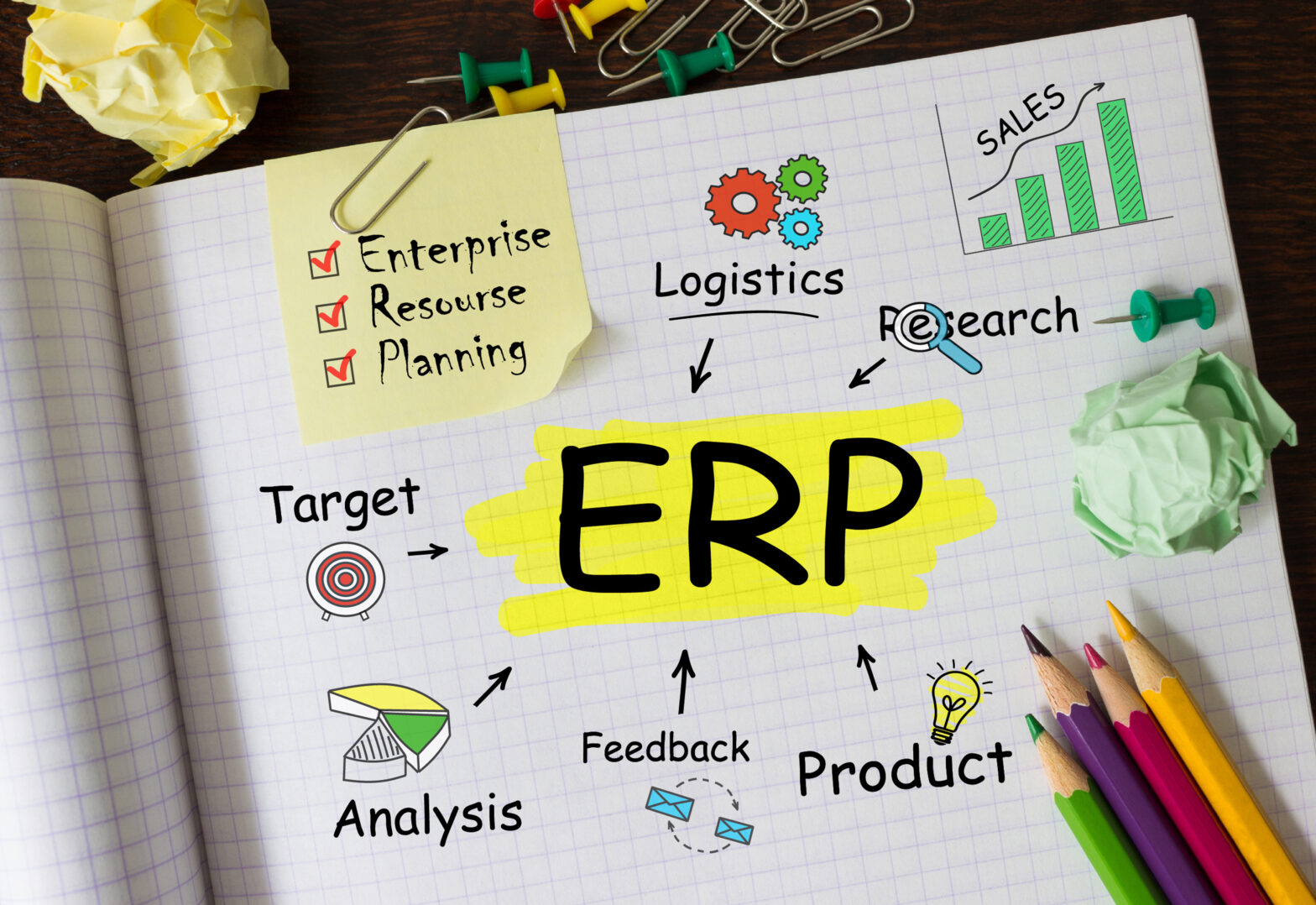Mobile technology is becoming essential as a workplace productivity tool and is changing the way businesses operate. Mobile Enterprise Resource Planning (mobile ERP) is a system built specifically for the mobile user, using the system through a device such as a smartphone or tablet instead of a location fixed computer.
Users need access to accurate, actionable data, and the faster they can access this the more productive they can be. Being able to provide mobile ERP apps will provide your workers with simple access to powerful functionality and real-time data. Additionally, having mobility in the manufacturing industries can help eliminate waste and allow businesses to gain a competitive advantage with upgraded business productivity.
An ERP mobile app should facilitate efficient communication, optimise workflow processes, promote collaboration, and enhance data accuracy. A good mobile solution should be fully integrated into your ERP system, offer real time access to information, be user friendly and up to date on the newest technology.
We’ve chosen seven essential points to help your organisation utilise mobile ERP:
Plan for the device
The first step when deciding to implement mobile ERP is knowing what kind of devices you are going to be using, it is easier to have a uniformity of devices when it comes to rolling the ERP apps out to your staff. If you aren’t able to do so or if you don’t want to adopt a BYOD (Bring Your Own Device) scheme, you can have your IT specialists recommend a selection of devices with minimum capabilities. Tablets and smartphones have differing processing powers and connect to the Internet in a different way than traditional laptops and desktops, which generally have more processing power. The mobile ERP you choose must be light enough to run without being unresponsive on a smartphone or tablet, an ERP such as Greentree software will be able to cope with balancing fast response times and precise data mining parameters.
User experience
Overall user experience is often the make or break in the success of any technology solution introduced within a company. Mobile ERP is no different in that respect. The main advantage is many companies are adopting this software for the first time, this means a new system will have no pre-existing structure to compete with but can also mean simple things like user experience are over looked in the race to implement new technologies and ‘keep up’. Some employees can have inflated expectations on the performance of their mobile device, especially when it comes to its loading speed.
Decide ahead of time whether to install a native or a web app. They both have pros and cons.
Native apps offer direct interaction from backend systems for mobile devices, which means better processing and speed. A drawback is that it requires more software development and coding. On the other hand web apps have very limited access to features, but require less development work in the creation stages.
Real time information access
Having real time access to information is imperative to some industries, where inventory visibility, workflow approvals, production reporting, demand alerts, and seeing who is logged into a machine and what machines are down, is all vital information necessary to make an informed decision.
Working with a system that can’t be relied upon means you’re essentially fighting against your own technology solutions to produce the same amount of work.
Another factor to consider when developing a mobile ERP strategy is that overseas business partners may not have the same internet speed, with some countries continuing to experience slower Wi-Fi and mobile data speeds than developed nations. There are mobile devices that now offer better connectivity, more suited for worldwide roaming but because your mobile ERP apps need to maintain near constant connection to your ERP system, with live updates and no lag time or batch transfers, the best approach is to allow users to have the option to save their data locally to their devices and apps (even with the absence of internet), then automatically submit the information to the back-end system when the connection is restored. This feature will go some way to helping you make better business decisions faster, with all the possible data available.
Securing the mobile apps, ERP data and devices
With mobile devices proliferating and the boundaries of the workplace slowly disappearing, valuable company data can potentially be transmitted over insecure networks, exposing sensitive information to unscrupulous hackers. Your mobile solution should offer best practices for managing your wireless system to keep your device and network security in place.
Organisations require a way to manage people, devices and data and a strong need to put control in place; including policy, data regulations and technology protections. Among all these specifications, secure user authentication mechanisms become necessary that are picked up from the ERP and deploy endpoint security systems. On top of this security measure a device management tool that enables administrators to register/unregister users on the network and also lock devices or remote wipe the data on devices that are lost, stolen or otherwise compromised would be incredibly beneficial to a mobile ready organisation.
Enhanced sales performance and customer service delivery
Sales and customer service are renowned competitive markets, mobile ERP technology can help you build and maintain valuable relationships.
Allowing sales representatives to take advantage of sales opportunities anywhere, anytime, whether at an industry event, client meeting or networking, they can quickly and easily provide quotes, access contact information and update prospect files from your CRM module.
Customer service roles can be enhanced by improving responsiveness to your customers’ needs with swift communication and up to the minute information like prices, order and delivery status, credit history, inventory availability, unpaid invoices, pending items and payment history.
Phased rollout
The most efficient and reliable way to build a mobile solution, is to do it in stages. SMEs, where cost and staff time is at a premium, want to get it right the first time with the least amount of downtime or delays. Being able to spend time polishing the app to make it work smoothly, finding bugs and fixing them in different multiple browser versions, devices or operational systems is no small task. Therefore, choosing the right tools for testing is a crucial consideration before the app is set for its first release.
Implementing everything in one-go might lead to a lot of disruption and a phased approach also means a simple way to manage the expectations of teams.
Allowing time for your IT teams to perfect features for the members of staff using them prior to release.
Evolving with technology
With technology advancing and evolving at a frankly frightening pace it’s worth thinking clearly about whether your mobile ERP software provider is fully capable of staying ahead of the curve and providing your company with the service it will need in a year, five years or a decades time? Can they keep you and your clients on the cusp of the latest technology, speeds and be continuously updating their mobile apps with features and functionality that help you take advantage of the newest technology to drive value to you and your partners?
Future proofing your organisation in this way will open doors where your competitors haven’t taken the time to do the same.




